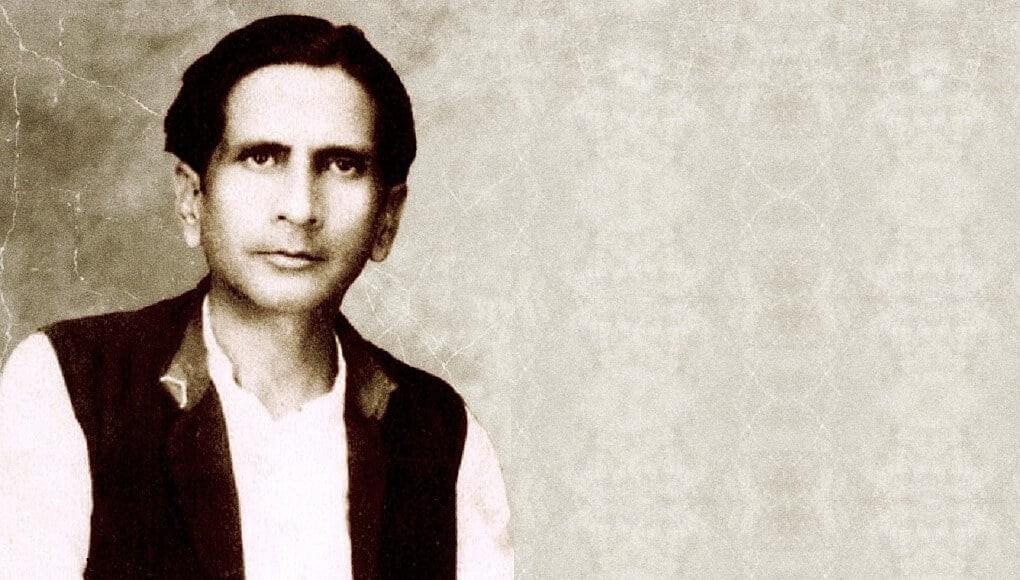Lucknow: Few poets in Urdu literature evoke the same mix of admiration and melancholy as Asrarul Haq Majaz, better known as Majaz Lakhnawi. A gifted writer whose verses captured the passions of youth, the pangs of unfulfilled love, and the revolutionary spirit of his time, Majaz’s life was as dramatic and poignant as the poetry he penned. This feature explores the genius of Majaz, his profound influence on Urdu poetry, and the legacy he left behind, tinged with both brilliance and tragedy.
A Poet is Born
Majaz was born on October 19, 1911, in Rudauli, a small town near Lucknow, into a family that valued education and culture. His poetic talents surfaced early, nurtured by the rich literary atmosphere of Awadh. Majaz pursued his studies at Aligarh Muslim University, a hub of intellectual and cultural activity that shaped his poetic sensibilities. It was here that his poetic identity blossomed, and he began crafting verses that resonated with the dreams and struggles of his generation.
The Voice of Rebellion and Romance
Majaz’s poetry was a unique blend of romanticism and revolutionary fervor. His iconic poem, “Ae Gham-e-Dil Kya Karun,” epitomizes the romantic despair that defines much of his work. Yet, he was equally adept at channeling the collective angst of a colonized nation, as seen in “Inquilab,” which celebrates the spirit of revolution.
Majaz had the rare ability to make complex emotions and socio-political ideas accessible to the masses. His use of metaphors, vivid imagery, and a conversational tone made his poetry both relatable and profound. For instance, his ode to Aligarh University, “Nazr-e-Aligarh,” remains an enduring symbol of intellectual and cultural pride for its alumni.
A Tragic Personal Life
Despite his literary success, Majaz’s personal life was riddled with turmoil. Known for his charismatic personality, he was adored by friends and fans alike, yet his romantic pursuits often ended in heartbreak. The unfulfilled love in his life found its way into his poetry, giving it a depth and vulnerability that continues to move readers.
Majaz’s struggles with mental health and alcoholism added to his woes. The societal pressures of his time, coupled with his sensitive nature, made him vulnerable to despair. His reliance on alcohol as an escape from his inner demons hastened his tragic decline. Majaz passed away in 1955 at the young age of 44, leaving behind an incomplete yet remarkable body of work.
Majaz’s Place in Urdu Poetry
Majaz is often compared to John Keats, not just for his romanticism but also for the brevity and brilliance of his career. Like Keats, Majaz’s poetry is imbued with a yearning for beauty and an acute awareness of life’s transience. His contemporaries, including stalwarts like Faiz Ahmed Faiz and Sardar Jafri, held him in high regard, recognizing the unique voice he brought to Urdu literature.
Majaz’s poetry continues to resonate with audiences across generations. His verses have been set to music, recited at mushairas (poetry gatherings), and quoted in films, ensuring his relevance in contemporary culture. The themes he explored—love, longing, social justice, and existential despair—remain universal, making his work timeless.

The Legacy of Majaz Lakhnawi
Majaz’s influence extends beyond his poetry. He was a symbol of the creative and rebellious spirit of his era, inspiring generations of poets and writers. His life story serves as a poignant reminder of the challenges faced by sensitive and creative minds in a world that often fails to understand them.
In Lucknow, the city he loved and immortalized in his poetry, Majaz’s memory lives on. Statues, literary festivals, and anthologies keep his legacy alive, celebrating not just the poet but the man who dared to dream, love, and fight for a better world.
Majaz Lakhnawi remains an enigma—a poet whose life and work continue to fascinate and inspire. His poetry is a testament to the power of words to capture the human condition in all its complexity. Though his life was tragically short, Majaz’s contribution to Urdu literature is immeasurable, ensuring his place as one of the most beloved and enduring poets of his time. In his own words:
“Ham toh samjhe thay ke barasaat mein barsegi sharab, Aayi barsaat toh barasaat ne dil tod diya.”
Indeed, Majaz’s poetry, like rain, has the power to soothe, stir, and leave an indelible mark on the soul.









